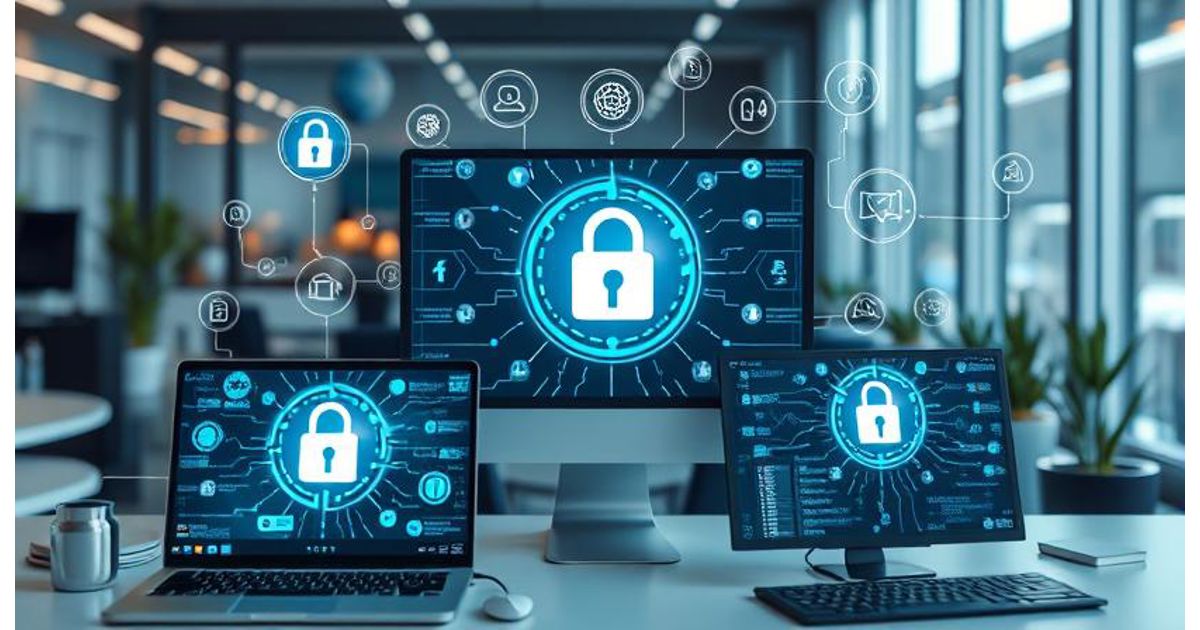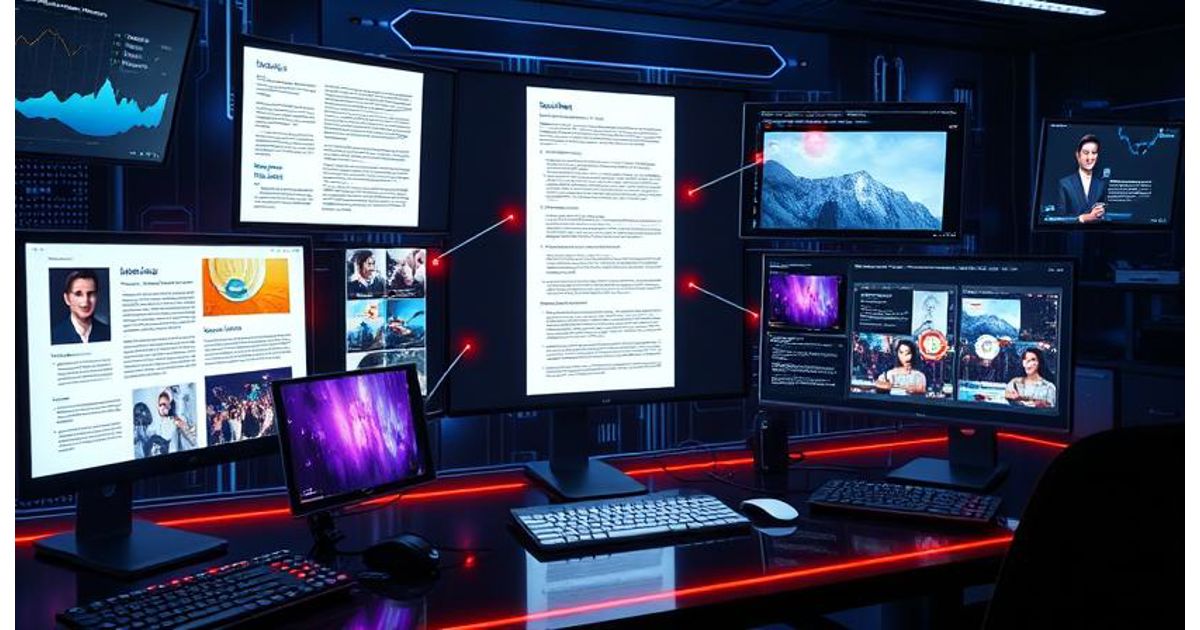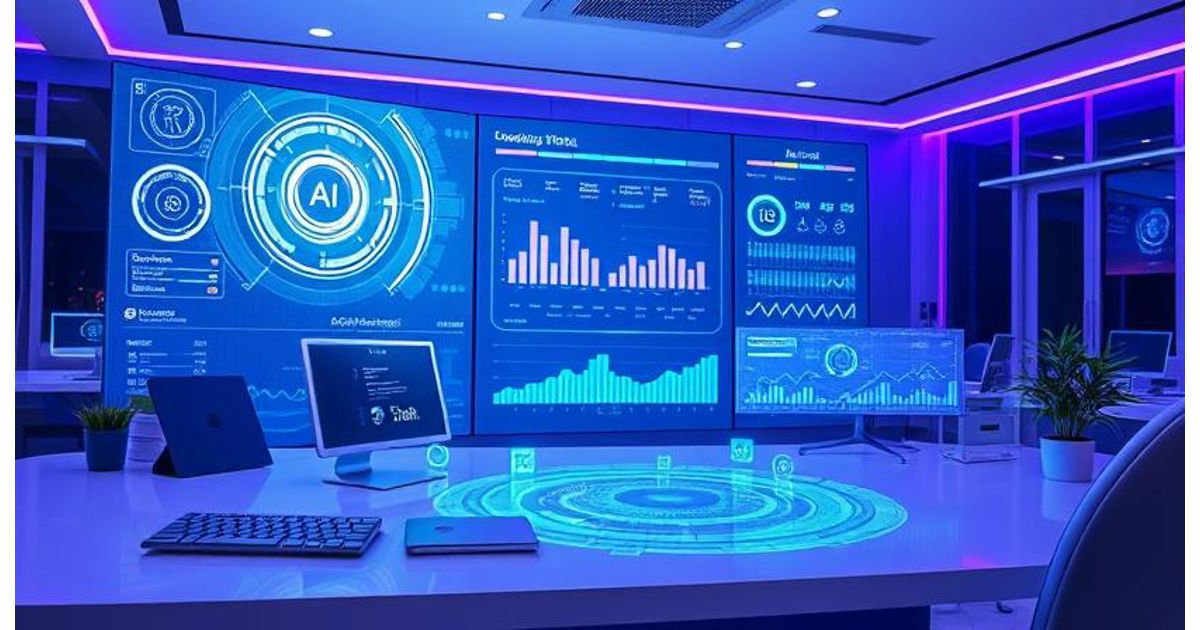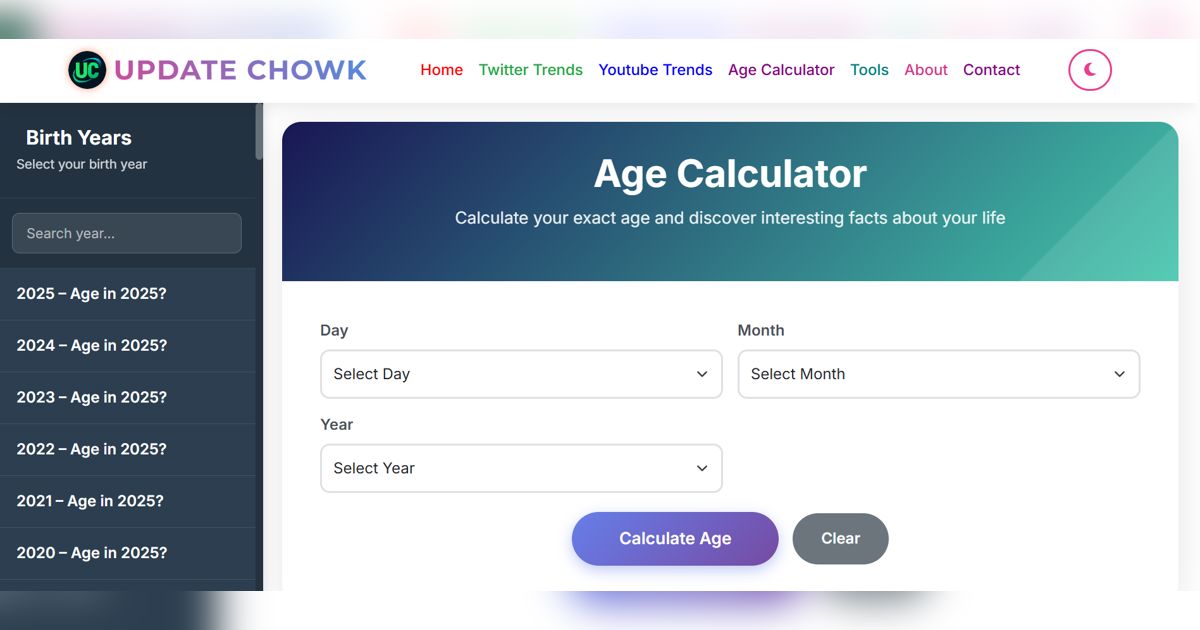AI is changing tech super fast, but it also opens doors to new problems we need to handle. As AI takes over how businesses run, what our gadgets do, and even important infrastructure, keeping our info safe and being secure online is more important than ever.
These days, people who use tech face dangers that didn't even exist five years ago – dangers made possible by AI itself. Knowing these risks and doing something about them isn't just a good idea anymore; it's a must if you want to protect your online life and your important stuff in this world run by AI.
The Weird Thing About AI and Privacy
How AI Changes Privacy
AI needs tons of data to actually work. Machine learning uses data sets full of personal stuff – what you look at online, what you buy, where you go, who you talk to, and what you like. That means the very tech that's supposed to make life easier is also making a detailed picture of who you are.
Companies say they'll keep this data safe, but data breaches still happen all the time. When AI deals with private info, any slip-up can cause way more damage, not just to people but to whole companies.
New Threats Popping Up
AI is helping cyber attacks get better faster than we can defend against them. Machine learning lets attackers find weak spots automatically, send out really convincing fake emails to trick people, and hide bad code so it looks real.
At the same time, using AI to defend ourselves turns into a back-and-forth, with attackers and defenders always one-upping each other. This creates a race where regular tech users are stuck in the middle, unsure if their data is actually safe.
What You Need to Know About Today's Cyber Threats
Attacks Powered by AI
Before, cybersecurity was pretty predictable. Hackers used known tricks, defenders updated their defenses, and things were mostly okay until someone found a new weak spot. AI throws all that out the window by making attacks that learn and change in real time.
AI malware can look at antivirus programs and change itself to avoid being caught. Deep learning can find security holes in a company by watching network traffic and how employees act. And chatbots can send super convincing fake emails to trick specific employees.
Deepfakes and Stealing Identities
AI can also make fake videos and audio – called deepfakes – which is a totally new kind of cyber threat. Crooks can now make it look and sound like a CEO is okaying a wire transfer, a celeb is backing a fake product, or a politician is saying something crazy.
This messes with systems that check who you are online. Facial recognition and voice ID, which are used more and more for security, become useless when AI can make fake faces and voices that are impossible to tell from the real thing.
Your Data is Less Private
AI can take tiny bits of data and figure out really personal stuff about you. By putting together your shopping habits, search history, location, and social media, AI can guess your health, religion, politics, and money situation with scary accuracy.
This lets people target you with ads, charge you different prices, and spy on you in ways that weren't possible before AI could find patterns that humans can't see.
Why You Should Care
Protecting Your Personal Info
Your online info is worth actual money and means a lot to you. If someone steals your ID, they can get into your bank account, open credit cards in your name, and commit fraud that takes years to fix.
Besides money, stolen info can lead to stalking, harassment, blackmail, and other bad stuff. The more info attackers get, the easier it is for them to mess with you.
Risks at Work
If you work for a company, cyber attacks that hit your company can hurt your reputation and your career. Ransomware, data leaks, and system problems can mess up your workplace and even cost you your job, even if you weren't the one responsible.
With more people working remotely and using cloud services, there are more ways for attackers to get in, which means keeping your own devices secure is super important for keeping your company safe.
How It Affects Everyone
Your own cybersecurity slip-ups add to bigger problems. If your devices get hacked, they can be used to attack important infrastructure. If your data gets stolen on a large scale, it can mess with elections, cause medical fraud, and screw up the money system.
You're not just a random person online – your security choices affect everyone.
What You Can Do to Stay Safer Online
Basic Security
Using multi-factor authentication is still the best way to stop people from hacking your accounts. Turn it on everywhere you can, and use authenticator apps instead of SMS when possible.
Use strong, different passwords for every account, and manage them with a good password manager. This stops attackers from using passwords from one breach to get into your other accounts.
Choose Tech That Respects Your Privacy
Look at the privacy settings for every online service you use. Most platforms are set to collect as much data as possible by default. Changing to stricter settings takes some work, but it really cuts down on how much you're exposed.
Think about using privacy-focused options for private talks. Messaging apps that use end-to-end encryption stop the service providers from seeing your messages, which protects you from attackers and spying.
Secure Your Devices and Network
Keep your operating systems and apps updated as soon as updates are available. Attackers use the time between when a weak spot is found and when it's fixed to cause trouble.
Use VPNs when you're on public WiFi. They encrypt the data between your device and the VPN, stopping attackers on the same network from stealing your info. At home, change your router's default password and turn on WPA3 encryption if you can.
What Companies and Governments Are Doing
New Rules
Governments around the world are making stricter rules about online privacy. The EU's GDPR set a standard for companies to protect personal data or face big fines. Similar rules are popping up in California, China, and other places.
Knowing how these rules affect your rights about how your data is collected, stored, and used is key to choosing which services to trust.
Holding Companies Responsible
Tech companies are starting to take more responsibility for cybersecurity. Big platforms are now putting out reports that show government data requests, security incidents, and what they did about them.
Still, there's a gap between what companies are doing and what users expect when it comes to privacy and security. Pressure from users is helping to push companies to do better.
Balancing What's Easy with What's Secure
The Trade-Off
You can't have perfect security and complete privacy while still using today's tech. Everything that's easy to use – cloud storage, fingerprint login, personalized recommendations – means giving up some privacy or security.
You don't have to get rid of all risks, but you should know what you're giving up and make choices that match what you care about.
Understanding Your Risks
Everyone faces different threats. A political activist needs way different security than someone who's just worried about credit card fraud. Tech workers at important companies need different protections than freelancers.
Think about your own situation, what's most important to you, and what the biggest risks are. Then, put in place protections that make sense for those risks, instead of going overboard and making things harder than they need to be.
What's Coming in Digital Privacy and Cybersecurity
Quantum Computing and Encryption
New quantum computers could break the encryption we use to protect data. Researchers are working on new encryption that can stand up to quantum computers, but it'll take years to switch everything over.
Companies that store really sensitive data that needs to stay secret for a long time are already switching to this new encryption.
AI Defenses
If AI is making attacks better, it's also making defenses better. Machine learning can spot suspicious network activity, find hacked accounts, and react to threats faster than people can.
The future will probably involve humans and AI working together on cybersecurity. People will guide the AI, making defenses that are better than either could do alone.
In short
Keeping your data private and staying secure online in the age of AI isn't just for tech experts – it affects everyone. As AI gets better and cyber threats change, it's more important than ever to know what's going on and take action.
Start with the basics: turn on multi-factor authentication, use strong passwords, keep your systems updated, and check the privacy settings for the services you use. Then, think about your own risks and add extra protections that make sense for you.
Tech will keep changing, bringing new problems and new ways to defend against them. But knowing the threats, valuing your privacy, and taking consistent action is the best way to protect yourself and help make the internet safer for everyone. Your online security matters – to you, to your job, and to the world.




